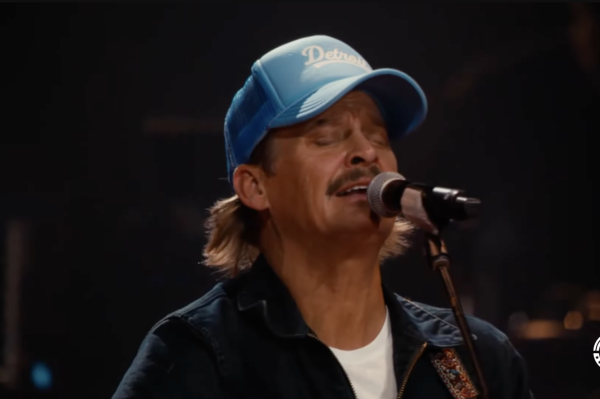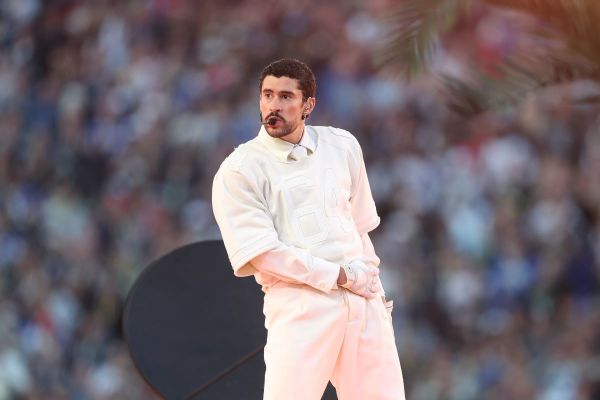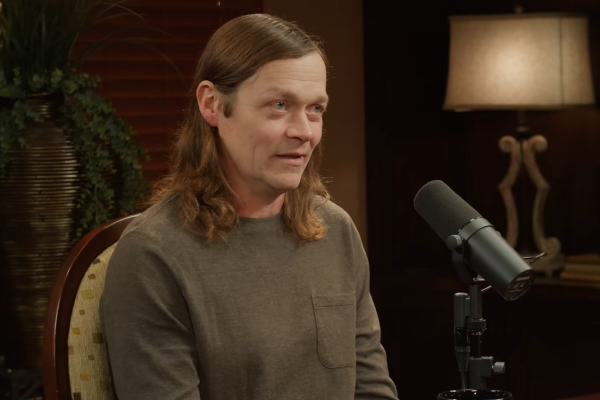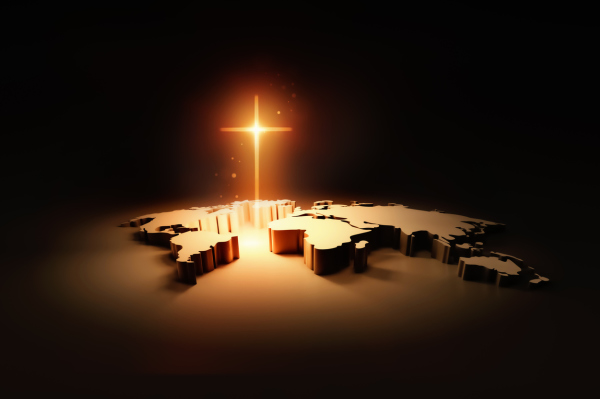General Douglas MacArthur: ‘Duty, Honor, Country!'
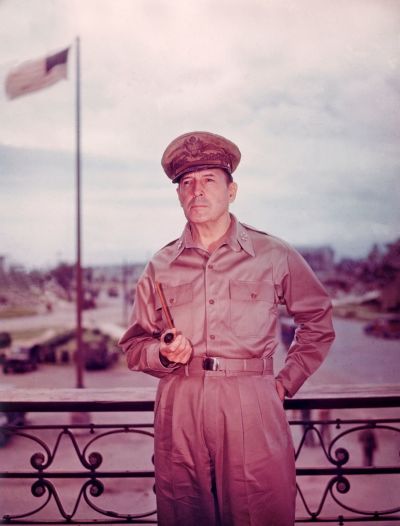
Over the Memorial Day Weekend, I was going through some boxes of memorabilia from offices past from college and seminary onward, trying to decide which ones to keep, which ones to dispatch to the Richard Land Center for Cultural Engagement at Southwestern Baptist Theological Seminary in Fort Worth, Texas, which ones my three children might want, and which ones I should jettison to the recycling bin.
As I was in the midst of this emotionally painful process I was confronted with an icon from my youth and adolescence — a framed picture of General Douglas MacArthur in uniform, along with a copy of the text of his “Duty, Honor, Country” speech delivered 60 years ago at West Point, May 12, 1962.
That picture and that speech hung on the bedroom wall of my boyhood home in Houston from a month or so after it was delivered until I graduated from college and entered seminary in 1969. Why? I was a great admirer of the general. In fact, before God called me into Christian ministry in 1963, my plan was to follow in General MacArthur’s footsteps, attend West Point, and become a career Army officer. I was going to serve in America’s army before God called me into His army.
I was too young to hear the General’s “Old Soldiers Never Die” speech before a joint session of Congress in 1951, but I was 15 in May 1962, and I was deeply impacted by the General’s speech, “Duty, Honor, Country!”
It has been said, I think quite correctly, that “you never completely escape the zip code into which you are born.” I would add that you never completely forget or jettison the influence of the era into which you are born. That is certainly true for me. That is why we speak so often of a particular generation and their common experience — "the baby boomers, (1946-1964),” Generation X, “the baby busters” (1965-1980), and the “millennials” (1981-1996).
I am a baby boomer, born in the first year of that massive generation (78 million strong) when the veterans came home from four years of war and their wives started having babies at unprecedented rates.
The neighborhood in which I grew up was built between 1946 and 1950 and virtually all of the houses were financed on G.I. loans. In my neighborhood you weren’t asked, “What’s your daddy do?” but instead, “What was your daddy in?” That was only natural because virtually every dad (and we all had dads in the home) had served in either the Army, Navy, Marines, Air Corps, or Coast Guard.
The streets in my neighborhood were named Ardennes, Bastogne, Calais, Dunkirk, Eisenhower, Forrestal, Guadal Canal, Hürtgen Forest, Iwo Jima, Jutland, Leyte, Mountbatten, Okinawa, St. Lô and Tarawa, in alphabetical order with Doolittle and Pershing as the connecting boulevards.
By the way, I lived on Bastogne, the namesake of the bloody fight in the Battle of the Bulge. My dad was in the U.S. Navy from 1940-1946, and was at Pearl Harbor, the First and Second Battles of the Coral Sea, Midway, Sabo Island (off Guadal Canal) where his ship was sunk. After survivor’s leave during which he met my mother in Boston in 1943, they were married and six weeks later he was sent back to the Pacific for the duration which included the Philippines, Saipan, Iwo Jima, and Okinawa.
My dad saw MacArthur wade ashore in the Philippines (where MacArthur reportedly told the Filipino President that his troops were going to see that he really couldn’t walk on water, showing that he could laugh at himself). My dad was in Tokyo Bay when the Japanese surrendered on the U.S.S. Missouri on Sept. 2, 1945.
He shipped home as soon as possible and began a second honeymoon with my mother on February 5, 1946, in Galveston, Texas. Nine months and one day later I became the permanent souvenir of that second honeymoon.
My dad served in the Naval Reserves from 1946-1961, when he was called back to active duty for a year during the Berlin Crisis, after which he retired.
My dad was a 100% “Navy man!” I was in kindergarten before I knew a toilet was not a “head” and a wall was not a “bulkhead.”
During most of my growing up years, my father had a big poster on the wall of our garage. That poster was an impressive aerial photograph of an aircraft carrier battle group with this quote, “When people ask me what I did to protect freedom in the twentieth century, I tell them I served in the United States Navy,” quoting John F. Kennedy.
What I am trying to convey to less “seasoned,” younger readers is my formative years were the '50s and '60s, and yes, there was rock 'n' roll, sock hops, drive-in movies, and hot rods, but there was also civil defense, “duck n’ cover,” drills, air raid shelters, and a pretty “hot” Cold War against the Soviet Union with the specter of atomic attacks. Remember, the Cuban Missile Crisis was in October 1962.
In the midst of that milieu, I developed a tremendous admiration for General MacArthur and I wanted to dedicate my life to defend my country and its remarkable freedoms from communist aggression with him as my example.
All of these thoughts and feelings suddenly washed over me as I held this picture of General MacArthur in my hands and as I read the truly stirring words of his “Duty, Honor, Country!” speech to the cadets at West Point.
The speech itself is a monument to the speechmaker’s art. With the miracle of the internet, I listened to the speech again in its entirety last night. I am told by eyewitnesses that when the great general (then 82 years old and destined to die in a little over two years) finished his speech, there was not a dry eye in the entire audience.
Douglas MacArthur was an extraordinary man who lived a remarkable life. He was born into a military family (his father was General Arthur MacArthur who was awarded the Congressional Medal of Honor at the Civil War Battle of Missionary Ridge and was known as the “Boy General of the Union Army.”) General Douglas MacArthur and his father are the only father-son team to be awarded the nation’s highest decorations for bravery in combat, the Congressional Medal of Honor.
Raised on Army outposts out West, the General said, “I learned to ride and shoot even before I could read and write — indeed, almost before I could walk and talk.”
It is amazing to contemplate the staggering, mind-blowing speed with which technology advanced in General MacArthur’s lifetime. As a small boy traveling in a wagon train to his father’s fort in Arizona, he and his mother were subjected to an attack with rifles and bows, and arrows from hostile Native Americans. In the span of one lifetime, he went from being attacked in a covered wagon to becoming the first military commander to authorize the use of an atomic bomb.
Just a brief survey of General MacArthur’s career illustrates the worthiness of all the accolades that have been associated with him. He graduated first in his class at West Point in 1903. He rose quickly through the ranks, becoming the youngest general (1918) in the American Expeditionary Force in World War I. One of the highest-ranking French generals, Gouraud, described MacArthur as “one of the finest and bravest officers I have ever served with.”
After the war, MacArthur served as the reforming Superintendent of West Point (1919-1922).
At 50, he was installed as the chief of staff of the U.S. Army and was the Army's youngest general. In 1935 he became military advisor to the Philippines as they prepared for independence planned for 1946.
After the Japanese attack on Pearl Harbor, President Roosevelt recalled the general to active duty and made him Supreme Allied Commander over all land forces in the Pacific.
General MacArthur proved himself to be a master tactician and strategist in planning the island hopping campaign that minimized casualties and led the Allied Forces to the doorstep of Japan when the atomic bomb ended the war in the Pacific.
He then became the Supreme Allied Commander for the Allied Powers, ruling Japan in the aftermath of the war. In perhaps the most surprising chapter in his illustrious career, he brought about the democratization of the semi-feudal country of Japan, giving women equal status and helping Japan form a thoroughly modern democratic society with breathtaking speed. By 1947 MacArthur invited Roger Nash Baldwin, the founder and first executive director of the ACLU (the American Civil Liberties Union) to come and instruct the Japanese government and people about universal civil liberties.
Later, in a confidential letter to ACLU leaders, the anti-militarist Baldwin said, concerning MacArthur, “His observation on civil liberties and democracy rank with the best I ever heard from any civilian — and they were incredible from a general.”
In 1950, when North Korea invaded South Korea, General MacArthur was named Supreme U.N. Commander to respond and served brilliantly in that capacity until he was relieved of his command in 1951 by President Truman for “insubordination” and he retired from the Army, having earned the Congressional Medal of Honor, three Distinguished Service Crosses, five Army Distinguished Service Medals, the Navy Distinguished Service Medal, seven Silver Stars, the Distinguished Flying Cross, a “Bronze Star with Valor,” the Air Medal and two purple hearts.
General MacArthur had one more great service to perform for his country. On May 12, 1962, General MacArthur addressed the cadets at his beloved West Point on the Subject: “Duty, Honor, Country.”
If ever there was a melding together of the man and the message, this was it. Perhaps the greatest general in American history, standing before a significant portion of the future officer corps for the U.S. Army in the coming generation, delivered a message none of them would ever forget.
General MacArthur tells them that Duty, Honor, and Country are “three hallowed words” that “reverently dictate what you ought to be, what you can be, what you will be.” Amplifying on his theme, General MacArthur tells them these three words “build your basic character. They mold you for your future roles as custodians of the nation’s defense.”
The general assures them that the American soldiers they will lead into battle will be up to the task. Speaking of these soldiers he has led into battle, he says:
“My estimate of him was formed on the battlefield many, many years ago, and has never changed….one of the world’s noblest figures, not only as one of the finest military characters, but also as one of the most stainless. His name and fame are the birthright of every American citizen. In his youth and strength, his love and loyalty, he gave all that mortality can give.”
The general then reminds the cadets that even though they are living in an evermore rapidly changing world, their most vital role “is to win our wars.”
“Yours is the profession of arms, the will to win, the sure knowledge that in war there is no substitute for victory,....”
He reminds the cadets, “Your guidepost stands out like a tenfold beacon in the night: Duty, Honor, Country.”
He then concludes with the words that stir the heart and soul:
“You are the leaven which binds together the entire fabric of our national system of defense….the Long Gray Line has never failed us. Were you to do so, a million ghosts in olive drab, in brown khaki, in blue and gray, would rise from their white crosses thundering those magic words: Duty, Honor, Country.”
The general then hastens to add that they are not “warmongers.”
“On the contrary, the soldier, above all other people, prays for peace, for he must suffer and bear the deepest wounds and scars of war. But always in our ears ring the ominous words of Plato, that wisest of all philosophers: ‘Only the dead have seen the end of war.’”
I know the impact the general’s words and his example made on me as a 16-year-old boy searching for my life’s purpose. I could think of no nobler calling than serving my country in the U.S. Army and defending her and all my countrymen from Soviet communist aggression.
Only God’s higher call to a lifetime of service in His army sent my life in another direction.
Thank God that He raised up men like Douglas MacArthur and the tens of thousands of men and women who have, in times of America’s greatest need, been willing to sacrifice “all their tomorrows” that we might have the freedom too many of us too often take for granted.
Not just on Memorial Day, but every day, let us be grateful for those who have been willing to die defending our freedom and let us honor their memory by exercising those freedoms and by teaching our rich history to succeeding generations.
Dr. Richard Land, BA (Princeton, magna cum laude); D.Phil. (Oxford); Th.M (New Orleans Seminary). Dr. Land served as President of Southern Evangelical Seminary from July 2013 until July 2021. Upon his retirement, he was honored as President Emeritus and he continues to serve as an Adjunct Professor of Theology & Ethics. Dr. Land previously served as President of the Southern Baptist Convention's Ethics & Religious Liberty Commission (1988-2013) where he was also honored as President Emeritus upon his retirement. Dr. Land has also served as an Executive Editor and columnist for The Christian Post since 2011.
Dr. Land explores many timely and critical topics in his daily radio feature, “Bringing Every Thought Captive,” and in his weekly column for CP.










